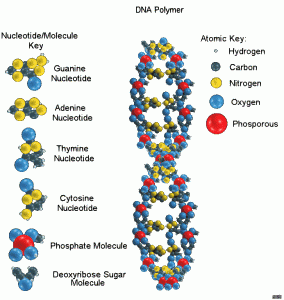Patients with hippocampal amnesia cannot imagine new experiences
Adding to the recent surge of studies on future thinking, Hassabis and colleagues recently reported the results they obtained from testing amnesic patients with bilateral hippocampal damage. Compared to healthy control participants, who were matched for age, education and IQ, the amnesic group tested in this study demonstrated impairment on a task that required the […]
 Adding to the recent surge of studies on future thinking, Hassabis and colleagues recently reported the results they obtained from testing amnesic patients with bilateral hippocampal damage. Compared to healthy control participants, who were matched for age, education and IQ, the amnesic group tested in this study demonstrated impairment on a task that required the imagination of new experiences. The authors noted that the patients’ imagined experiences were strikingly deficient in spatial coherence, leading to fragmented constructions of the future that were lacking in richness. In light of the results of this study, the authors suggested that the hippocampus may provide the spatial context, a critical contribution, for the creation of new experiences. Clickthrough for abstract.
Adding to the recent surge of studies on future thinking, Hassabis and colleagues recently reported the results they obtained from testing amnesic patients with bilateral hippocampal damage. Compared to healthy control participants, who were matched for age, education and IQ, the amnesic group tested in this study demonstrated impairment on a task that required the imagination of new experiences. The authors noted that the patients’ imagined experiences were strikingly deficient in spatial coherence, leading to fragmented constructions of the future that were lacking in richness. In light of the results of this study, the authors suggested that the hippocampus may provide the spatial context, a critical contribution, for the creation of new experiences. Clickthrough for abstract.
Abstract
Amnesic patients have a well established deficit in remembering their past experiences. Surprisingly, however, the question as to whether such patients can imagine new experiences has not been formally addressed to our knowledge. We tested whether a group of amnesic patients with primary damage to the hippocampus bilaterally could construct new imagined experiences in response to short verbal cues that outlined a range of simple commonplace scenarios. Our results revealed that patients were markedly impaired relative to matched control subjects at imagining new experiences. Moreover, we identified a possible source for this deficit. The patients’ imagined experiences lacked spatial coherence, consisting instead of fragmented images in the absence of a holistic representation of the environmental setting. The hippocampus, therefore, may make a critical contribution to the creation of new experiences by providing the spatial context into which the disparate elements of an experience can be bound. Given how closely imagined experiences match episodic memories, the absence of this function mediated by the hippocampus, may also fundamentally affect the ability to vividly re-experience the past.







